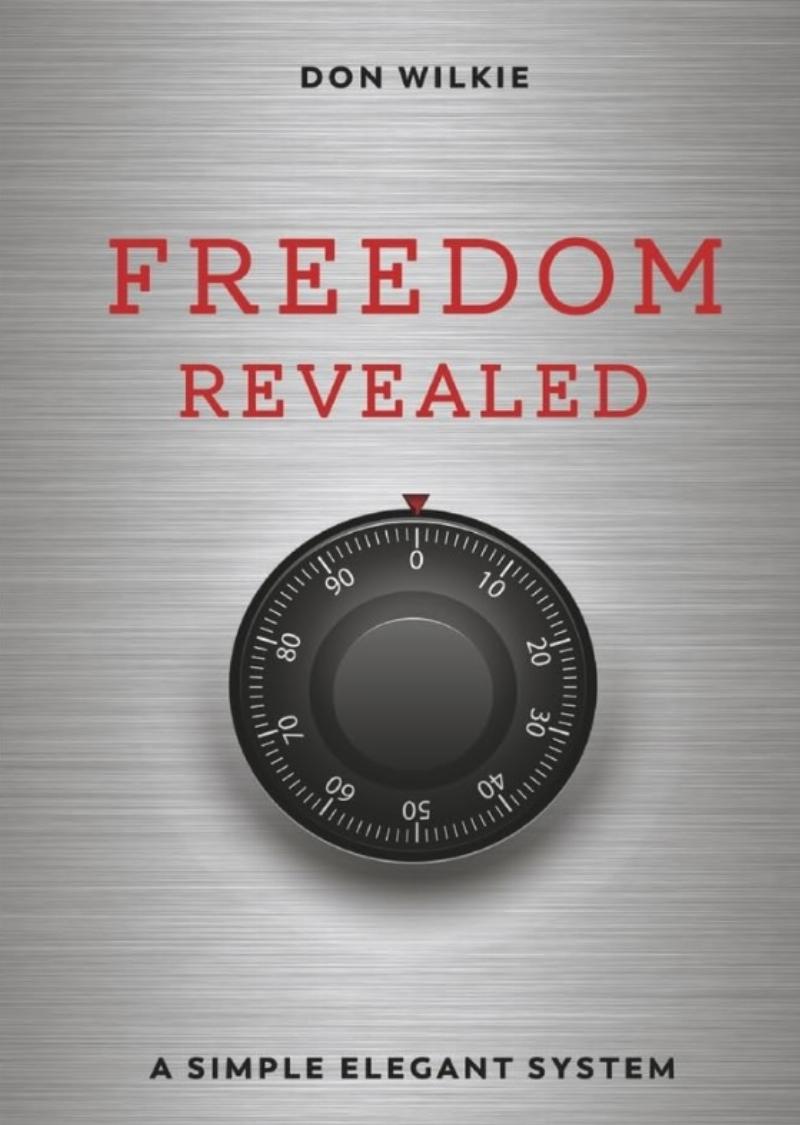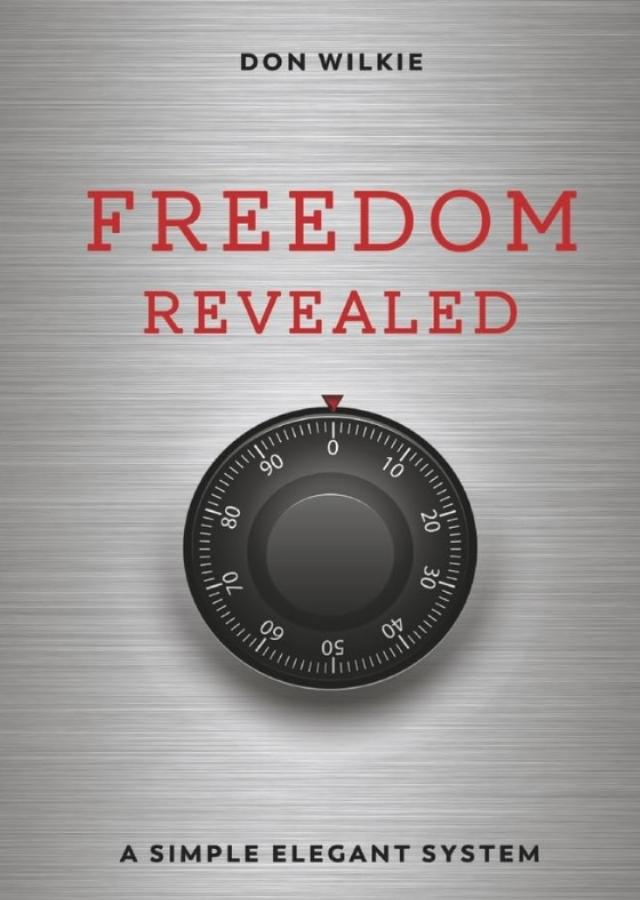


Every politician in Washington loves to talk about “our freedoms.” They wave flags, sing songs, and quote the Founders when it suits them. But when the cameras are off, they’re usually busy voting for more spending, more rules, and more regulations that quietly erode the very liberty they claim to defend. That’s why a book like Freedom Revealed by Don Wilkie feels so bracing: it reminds us that freedom isn’t a mood or a metaphor. It’s a system. And if you don’t keep the system running properly, it breaks.
This isn’t airy theory. Freedom Revealed lays out freedom the way an engineer would describe a machine: parts, gears, inputs, and outputs. When they mesh, you get liberty and prosperity. When they grind against each other, you get waste, dependency, and eventually tyranny. It’s blunt, it’s logical, and it’s exactly the kind of framework our leaders in Washington ought to be working from.
One of the book’s central insights is the contrast between the marketplace and government. The marketplace is competitive. Companies have to win over customers or they go out of business. That competition drives down waste and improves service. Government, by contrast, has no competition. It can’t go bankrupt, it can’t be fired, and it rarely admits mistakes. So it grows, accumulates rules, and generates waste.
The point is simple but devastating: if you want prosperity, you need more marketplace and less government. Yet our current political class keeps flipping the equation -- letting bureaucracies expand while treating the private sector like a piggy bank. The result? Rising costs, stagnation, and a citizenry that feels more controlled than free.
Freedom Revealed drives home a truth most politicians seem to have forgotten: the American middle class wasn’t created by government handouts. It was born from limited government that allowed markets to function. Prosperity flows from competition, innovation, and the elimination of waste -- not from subsidies, entitlements, or central planning.
Read these chapters and you’ll start to see modern politics in a new light. Every trillion-dollar “stimulus,” every new alphabet-soup program, every “temporary” rule that never expires -- each one is another wrench thrown into the machinery of freedom. No wonder the middle class feels squeezed.
Another crucial section focuses on responsibility. In a free system, adulthood means independence. You earn your way, you pay your dues, and you don’t rely on someone else -- especially not the government -- for your sustenance. Dependence, no matter how kindly it’s dressed up, is the enemy of liberty.
This is a point today’s culture desperately needs to hear. We’ve built entire political platforms around encouraging dependency, treating it as compassion. But Freedom Revealed shows the hard truth: a dependent citizen is not a free citizen. A nation that fosters dependency is a nation slowly dismantling its own freedom.
 The book also underscores the genius of the Constitution. It wasn’t written to empower government -- it was written to restrain it. Franklin and the other framers understood that government left unchecked always expands toward arbitrary power. The Constitution was the box meant to keep that power contained.
The book also underscores the genius of the Constitution. It wasn’t written to empower government -- it was written to restrain it. Franklin and the other framers understood that government left unchecked always expands toward arbitrary power. The Constitution was the box meant to keep that power contained.
Read in today’s context, this point feels almost revolutionary. Washington now treats the Constitution like an inconvenience to be worked around, not a limit to be honored. Every executive order that stretches the law, every agency that piles on new rules without legislation, every judicial ruling that rewrites rather than interprets -- all of it erodes the box that keeps us free.
What makes Freedom Revealed so compelling is its refusal to get lost in jargon. It doesn’t obsess over polling data or partisan gossip. It strips freedom down to its working parts: limited government, competitive markets, and personal responsibility. These aren’t negotiable values. They’re the minimum requirements for liberty.
And here’s the sobering thought: if we lose those requirements, freedom doesn’t fade gently into the night. It collapses. The book points to places like Detroit -- once thriving, now hollowed out by regulation, corruption, and dependency -- as cautionary tales. Multiply Detroit’s fate by fifty states, and you see the trajectory America is on if we keep treating government as savior instead of servant.
Freedom Revealed is not a policy white paper, nor is it a partisan rant. It’s a user’s manual for liberty. It explains why freedom works, how it breaks, and what we need to do to keep it alive. For conservatives and constitutional originalists, it’s a vindication of what we’ve always believed: liberty is sustained by responsibility, prosperity is born of competition, and government must be restrained by design.
More importantly, it’s a challenge. It dares us to confront the waste, dependency, and arbitrary power that are choking our republic. It dares us to demand that our leaders think more like Franklin -- practical, disciplined, and wary of unchecked government -- than like the career politicians who have led us into trillion-dollar deficits and endless bureaucracy.
If freedom is a system, then America is overdue for a tune-up. And Freedom Revealed is exactly the kind of book that can remind us how to get back under the hood.
Julio Rivera is a business and political strategist, cybersecurity researcher, founder of ItFunk.Org, and a political commentator and columnist. His writing, which is focused on cybersecurity and politics, is regularly published by many of the largest news organizations in the world.
